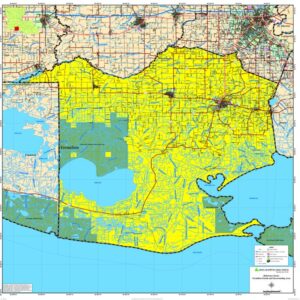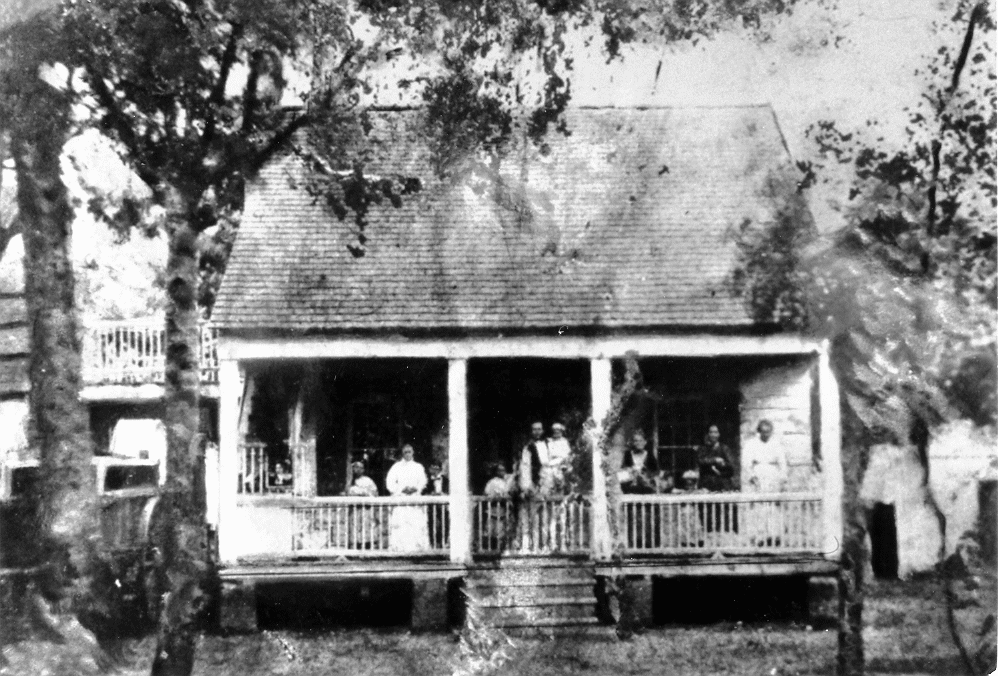Vermilion Parish’s history is a gripping account of persistence in the face of great odds. The early Acadians who settled in the region left a legacy of culture and heritage. They had to contend with the unfamiliar terrain and, at times, harsh weather and create successful communities. This indomitable spirit laid down the vibrant tradition that still defines Vermilion Parish today. This fascinating cycle of these early Acadians and the legacy they left to establish a parish’s brand of quaintness and delight–a charm Vermilion Parish could not shake off with its centuries-old heritage.
William Thibodeaux, local author-historian, offers a wonderful fact-filled account of the history of Vermilion Parish in the Abbeville Meridional on March 10, 2015.
Historical Background of the Acadian Influence
The Acadians, also known as the Acadians, are the descendants of 17th and 18th-century French settlers who established themselves in parts of Acadia, which comprised the Canadian Maritime Provinces of New Brunswick, Nova Scotia, Prince Edward Island, as well as the Gaspé Peninsula in Quebec and the Kennebec River in Maine. These settlers primarily originated from France’s southern and southwestern regions, historically known as Occitania. It is worth noting that some Acadians are also claimed to have Indigenous ancestry.
French Settlers in Acadia
The Acadians’ settlement began in the early 17th century when French explorers and traders established colonies there. One of the notable settlements was the Habitation at Port-Royal, built by Pierre Dugua, Sieur de Monts, in 1605. Although the trading monopoly of de Monts was later canceled, some settlers remained in Acadia, and additional expeditions were undertaken to Port Royal, including one led by Jean de Biencourt de Poutrincourt et de Saint-Just in 1610.
British Expulsion of the Acadians
Conflicts between the French and British colonial powers marred the history of the Acadians. The six colonial wars during the 17th and 18th centuries significantly influenced the Acadians’ fate. The last of these conflicts, the French and Indian War, resulted in the British Expulsion of the Acadians from their homeland. After the war, many Acadians returned to Acadia from the British colonies or France, while others migrated to Louisiana, where they became known as Cajuns.
Migration to Louisiana
The migration of Acadians to Louisiana played a crucial role in shaping the region’s cultural landscape. Following their expulsion from Acadia, Acadians embarked on a journey that took them to various destinations. Some settled in Louisiana, drawn by the Spanish authorities’ invitation to establish a new home in the province. Over time, the Acadian culture merged with the existing French Creole and African cultures in the region, giving rise to the distinct Cajun culture that thrives in Louisiana today.
Acadian Cultural Influence in Louisiana
The Acadians brought with them a rich cultural heritage that has left an indelible impact on the identity and traditions of Louisiana. Despite their challenges as a displaced community, the Acadians managed to preserve their unique language, traditions, and way of life.
Preservation of Language and Traditions
One of the most significant contributions of the Acadians to Louisiana is preserving the French language. Despite the pressure to assimilate into the English-speaking American society, the Acadians tenaciously held onto their French roots, ensuring the survival of the Cajun French dialect. Today, efforts are being made to revitalize and promote the French language in Louisiana schools and communities.
Alongside their language, the Acadians also preserved their cultural traditions. Music, dance, and storytelling played a vital role in maintaining their identity. Cajun music, characterized by lively fiddle tunes and accordion melodies, has become synonymous with Louisiana and is celebrated at numerous festivals and music venues.
Culinary Impact
The Acadian influence is most evident in Louisiana’s vibrant culinary scene. Cajun cuisine, renowned for its bold flavors and hearty dishes, is a testament to the Acadians’ resourcefulness and ability to transform humble ingredients into mouthwatering meals. Traditional Acadian dishes such as gumbo, jambalaya, and crawfish étouffée have become iconic symbols of Louisiana’s gastronomy, attracting food enthusiasts worldwide.
Festivals and Celebrations
The Acadian spirit is celebrated annually through various festivals and events in Louisiana. Festivals such as the Festivals Acadiens et Créoles in Lafayette and the Louisiana Cajun-Zydeco Festival in New Orleans showcase the Acadian heritage’s vibrant music, dance, and cuisine. These gatherings serve as a platform to honor the contributions of the Acadians and bring together people from different backgrounds to experience the unique culture of Louisiana.
Acadian Legacy in Vermilion Parish
Vermilion Parish, located in southwestern Louisiana, boasts a rich Acadian heritage, exemplifying the lasting impact of Acadian culture on local communities.
Acadian Heritage Sites
Vermilion Parish is home to several historical sites that highlight the Acadian legacy. The Acadian Museum in Erath showcases artifacts, documents, and exhibits that tell the story of the Acadian settlers and their journey to Louisiana. Visitors can explore the museum’s displays to understand Acadian culture and its roots better.
Influence on Local Art and Music
The Acadian influence is also reflected in Vermilion Parish’s local art and music scene. Artists and musicians draw inspiration from Acadian heritage to create unique and expressive works. Acadian themes and motifs can be seen in various art forms, including paintings, sculptures, and crafts. Additionally, traditional Cajun music, with its lively rhythms and soulful melodies, resonates throughout the parish, perpetuating the Acadian artistic legacy.
Economic and Social Contributions
The Acadian community has significantly contributed to Vermilion Parish’s economic and social fabric. Acadian-owned businesses, ranging from restaurants to specialty shops, play a vital role in the local economy. Their entrepreneurial spirit and dedication to preserving and sharing Acadian heritage have contributed to the area’s cultural tourism, attracting visitors from far and wide.
Contemporary Recognition of Acadian Influence
The enduring legacy of the Acadians has garnered recognition and sparked efforts to preserve their culture and seek acknowledgment for past injustices.
Lawsuit for British Expulsion
An important chapter in Acadian history is the Expulsion of 1755, when the British forced the Acadians to leave their homeland. Recently, efforts have been made to seek recognition and justice for this historical event. In 1997, Warren Perrin, an attorney from Louisiana filed a lawsuit against the British Crown for the expulsion and the hardships it caused. While the lawsuit aimed for a formal apology rather than monetary compensation, it symbolizes the desire to shed light on the injustices faced by the Acadian community.
Efforts for Formal Apology
In conjunction with the lawsuit, there have been ongoing efforts to secure a formal apology from the British government for the expulsion of the Acadians. Advocates argue that an apology would acknowledge the historical wrongs and promote healing and reconciliation among the affected communities. The issue remains a topic of discussion and represents the significance of recognizing and addressing historical injustices.
Ongoing Cultural Preservation
The Acadian influence is actively preserved and celebrated in various ways throughout Louisiana. Cultural organizations, museums, and educational institutions collaborate to promote Acadian heritage and ensure its transmission to future generations. Language programs, music workshops, and cultural events continue to thrive, providing opportunities for individuals to connect with and embrace their Acadian roots.






